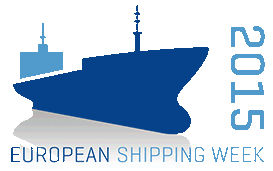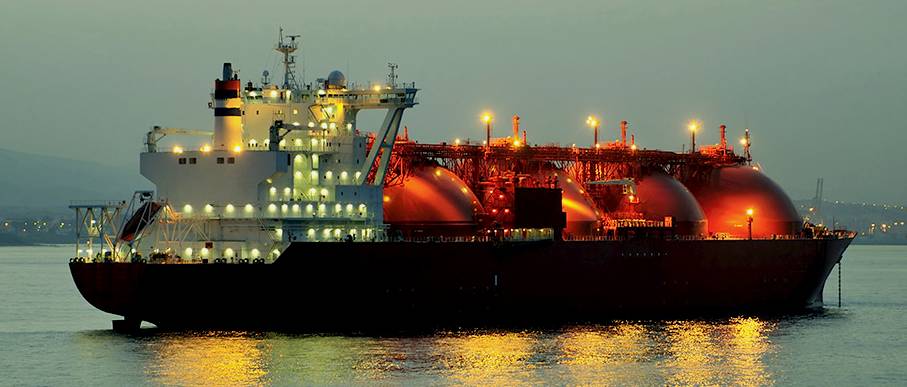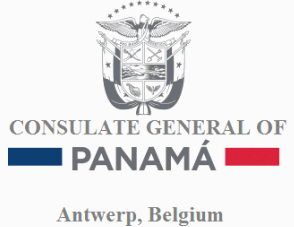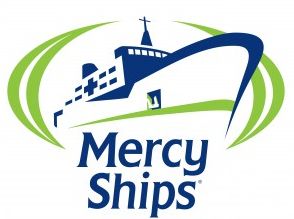|

Dr Pierre C. Sames from DNV GL, introduced the Vessels for the Future initiative at the European Shipping Week in Brussels
on the 3rd of March 2015. The aim of the new research association being to spur maritime transport’s competitiveness.
EUROPEAN
RESEARCH ASSOCIATION
Launched in November 2014, over 50 companies, research institutes, academic organizations and interested associations have already signed up to take part in the initiative to work towards a more sustainable European transport
system. Dr Sames is quoted as saying: “Aiming at a private public partnership is important not only as it allows us to have a coordinated research, development and implementation (RDI) programme which covers both vessels and waterborne operations, but it demonstrates a clear commitment from all stakeholders to meet the ambitious goals of the
initiative.”
The initiative focuses on the three key areas for the maritime transport cluster: safe and efficient waterborne transport and competitiveness of the maritime sector in Europe. Vessels for the Future has set ambitious goals in a 2050 perspective: an 80 per cent reduction in CO2 and 100 per cent reduction in SOx and NOx emissions, and a reduction in risk by a factor of 10.
Five maritime technologies are seen as vital to unlocking greater efficiencies and improving environmental performance: new materials and processes, fuels and propulsion systems, information and communication technology (incl. e-maritime), hull water interaction, energy management and novel vessel design concepts. In addition, Vessels for the Future aims at creating the first European vessel demonstrator to test new technologies at ship level. Advances in these areas are also capable to strengthen industrial competitiveness and job creation in our sector.
By developing energy efficient and safe vessels (or vessels for the future), the initiative will address the societal challenge of moving towards sustainable transport. At the same time it will maintain the cutting edge design, manufacturing and innovative production capacities, having a positive impact on employment and the global competitive¬ness of the European economy.
“We are now looking forward to taking more action on this initiative,” said Dr Sames. “The programme has the potential to greatly increase the introduction of innovative enabling waterborne technologies. And the focus on demonstrating the cost vs. performance benefits of the innovations will ensure that they find a place in the market. This will further improve the profitability of industrial research by increasing market share, thereby enabling more investment in long term technological competitiveness. The next step for our initiative is to engage with the EU Commission to move towards a contractual private public partnership.”

EUROPEAN
SHIPPING WEEK 2- 6 MARCH 2015
European Shipping Week will take place over the course of the week of 2-6 of March 2015 and will feature a variety of events. European Shipping Week is intended to be a platform where policy-makers from the main EU institutions will meet and engage with European
shipowners and other stakeholders from the shipping sector. The focus will be on shipping, in all its different aspects.
European Shipping Week is the brainchild of the European Community Shipowners' Associations (ECSA) and is run by a Steering Group made up of Europe's main shipping organisations as well as the European Commission and Shipping Innovation. The shipping organisations involved on the Steering Group include: ECSA; Cruise Lines International Association (CLIA) Europe; European Community Association of Ship Brokers and Agents (ECASBA); Interferry; the European Dredging Association; the World Shipping Council, as well as the European Tugowners' Association.

ECSA
REPORT PRESS CONFERENCE MARCH 2015
At a press on the 3rd of March 2015 ECSA presented the results of a recent update of the Oxford Economics study on the economic value of the EU shipping industry, which highlights the industry’s important contribution to the EU economy based on new and more reliable data.
According to the study, the overall contribution of the European shipping industry to the EU’s GDP in 2013 is estimated to have been €147
billion. Moreover, for every €1 million the European shipping industry contributes to GDP itself, it creates another €1.6 million elsewhere in the European economy.
In terms of employment, the industry provided jobs to an estimated 2.2 million people both on board vessels and ashore in the wider maritime cluster. The industry directly employs more workers than the aviation sector, while, between 2004 and 2013, direct employment grew by 25%. Moreover, EU shipping is far more productive in terms of GDP generated per worker than the EU average.
‘Europe controls the world’s largest and most innovative fleet of ships’ remarked Patrick Verhoeven, ECSA Secretary General, adding ‘this very important fact is often overlooked despite the fact that it plays a key role in the economic impact of our industry on the European economy’.
As the study shows, the ultimate ownership or control of 40% of the world’s gross tonnage lies in an EU country. What is more, the EU controlled fleet has grown strongly. Between the start of 2005 and the start of 2014, the EU controlled fleet expanded by more than 74% in tonnage, and by 72% in terms of deadweight tonnage.


In
the UK (2013) the
TSB kicked in £190,000 to help develop the concept on the left. On the
right is a counter-trading (balanced) pendulum based generator from the
University of Aberdeen, using rotational motion of the parametric pendulum mounted on a floating structure and excited by the waves to extract the energy from the sea.
SPONSORS

CONTACTS
Shipping Innovation
Limited
Petrospot House, Somerville
Court
Trinity Way,
Adderbury
Oxfordshire OX17 3SN
Shipping
Innovation Limited is an independent joint venture company that brings
together two of the most creative and well-connected media companies in
the maritime, transport and energy industries, Elaborate
Communications Ltd and Petrospot
Ltd.
sales@shippinginnovation.com
General Enquiries:
+44 1295 814455
Sponsorship & Advertising: +44 1296 682108 & +44 1295 814455
Press & PR: +44 1296 682356
General Enquiries
- Luci Llewellyn-Jones
Director - Events
Tel: +44 1295 814455
events@shippinginnovation.com
Sponsorship
Llewellyn Bankes-Hughes
Director
Tel: +44 1295 814455/+44 7768 574430
sales@shippinginnovation.com
Karen Martin
Sales Manager
Tel: +44 1296 682108/+44 7812 077502
sales@shippinginnovation.com
Advertising
- Karen Martin
Sales Manager
Tel: +44 1296 682108/+44 7812 077502
sales@shippinginnovation.com
Steve Simpson
- Advertising Sales Manager
Tel: +44 1295 814455
sales@shippinginnovation.com
Press and PR enquiries
- Lisa Jacobs
or Debra Munford
Tel: +44 1296 682356
pr@shippinginnovation.com



Without
financial support to kickstart disruptive technology projects (and
create jobs), startup companies without a trading track
record or industrial allies, are forced to go it alone at a crawl. The
above is a Phase 1 feasibility study paid for entirely by BMS Ltd, because
the funding rules do not favour startups, where banks will not lend and
even venture capitalists baulk at such ground breaking innovation.
The
SeaVax ZCC (Zero Carbon Cruiser) platform promises truly emission free
transport on our oceans. Just as well as this marine robot is designed to
vacuum up ocean plastic waste - without adding the the pollution. The company is looking for EU collaborative partners for the
Horizon
2020 call. SeaVax uses a revolutionary energy
harvesting system. This vessel pays for itself in diesel
fuel saved every ten years - and could significantly improve the
quality of fish stocks, by keeping ocean plastic at bay.
LINKS
http://maritimeglobalnews.com/news/vessels-future-initiative-bgzat6
|















